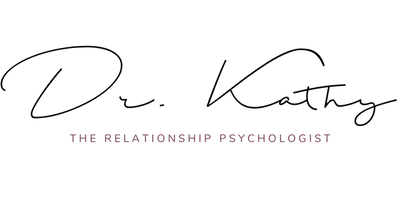Healing from an affair is one of the hardest things a couple can do. It takes time, effort, compassion, and a whole lot of patience. Most people who experience betrayal want to heal — and many do. They just don’t talk about it, often because of the shame and judgment that surround infidelity.
After working with thousands of couples and observing what truly helps relationships recover, I’ve noticed something important: five key traits show up again and again in couples who successfully heal from infidelity.
These traits do not require perfection, they require intention. I’ve seen them in every couple who has made it through. So if you’re hoping to heal, take a page from these couples. Do your best to practice these traits and weave them into your relationship.
Let’s explore each of the 5 traits…
1. A commitment to communication, even when it’s hard.
Healing after betrayal requires a level of communication that most couples haven’t needed before. You need to talk about things that make your heart break. You will hear things you wish you never had to hear. But the couples who make it through learn how to talk with each other instead of at each other. They learn to listen with compassion, ask follow-up questions, and stay calm even when their feelings are intense.
They listen for feelings, validate those feelings, and reassure their partner. And if they don't already have these skills, they commit to building them. Research consistently shows that effective communication is linked to better relationship satisfaction and recovery after infidelity (Snyder, Baucom, & Gordon, 2007).
2. Positive regard for each other, before and after the affair.
When a couple has a foundation of love and mutual respect, even betrayal will not erase that entirely. It may go underground for a while. It may get buried under layers of hurt and anger. But somewhere in the mix, there’s still a memory of why you chose each other — and a spark of that original love.
Couples who heal tend to retain a sense of appreciation for one another, even while they’re hurting. This emotional connection helps guide the healing process. It keeps the door open to repair.
3. Acts of care that show, “You still matter to me.”
Healing happens in many small, quiet moments: making coffee in the morning, sending a check-in text, leaving a kind note, noticing when your partner is overwhelmed. These daily actions are like stitches — they close the emotional wounds little by little.
In fact, research in relationship science emphasizes that consistent emotional responsiveness and “turning toward” behaviors can significantly rebuild trust and emotional safety (Gottman & Silver, 2015). Even though someone is hurting, the choice to still be kind and turn towards their partner after a difficult moment is a critical trait in successful couples.
4. A willingness to do individual healing work.
Affairs cause trauma and often come from trauma. When someone strays, there are deeper issues at play — untreated trauma, poor coping mechanisms, compulsive behaviors, depression, anxiety, or a history of relational dysfunction.
Couples who heal don’t just work on the relationship — they also take a hard look inward. They take responsibility for their own wounds and actively seek to grow. Whether that means therapy, recovery work, trauma healing, or learning better emotional regulation skills, the healing journey becomes about becoming the kind of partner they want to be — not just demanding change from the other.
5. A shared belief that healing is possible.
Hope is the engine of recovery. When both people believe that the relationship can be healed — even if they don’t know exactly how — they’re more likely to stay in the process long enough to see real progress.
In fact, mindset matters more than people realize. Couples who expect to improve tend to do better in therapy, according to outcome research (Baucom et al., 2006). I’ve seen couples on the brink of divorce come back from the edge — not because it was easy, but because they believed in the possibility of a better future and were willing to do the work to get there.
If you’re in the thick of affair recovery right now, I hope this gives you some encouragement. You don’t need to have all of these traits fully developed. You just need a little bit of each — enough to keep trying, enough to keep caring, enough to believe in the goodness that still lives between you.
Healing is possible. Not guaranteed, not easy — but absolutely possible!
References:
- Snyder, D. K., Baucom, D. H., & Gordon, K. C. (2007). Getting past the affair: A program to help you cope, heal, and move on—together or apart. New York: Guilford Press.
- Gottman, J. M., & Silver, N. (2015). The seven principles for making marriage work: A practical guide from the country’s foremost relationship expert. New York: Harmony Books.
- Baucom, D. H., Shoham, V., Mueser, K. T., Daiuto, A. D., & Stickle, T. R. (2006). Empirically supported couple and family interventions for marital distress and adult mental health problems. Journal of Consulting and Clinical Psychology, 64(1), 53–64. https://doi.org/10.1037/0022-006X.64.1.53
Dr. K's Books on Infidelity Recovery
The Courage to Stay - How To Heal From an Affair & Save Your Marriage
The Courage to Stay Journal - An Affair Recovery Workbook for the Hurt Partner
More Affair Recovery Articles
What If My Partner Is Having An Affair With Co-Worker
How To Get Your Partner To Stop Talking To the Affair Partner
I Just Found Out My Partner Cheated, Now What?
Why Do People Have Affairs?
How Do I Tell Him That I Know He Cheated?
How To End an Affair - Sample Break Up Letter
All Healing from Infidelity Articles
See All Our Infidelity Articles
